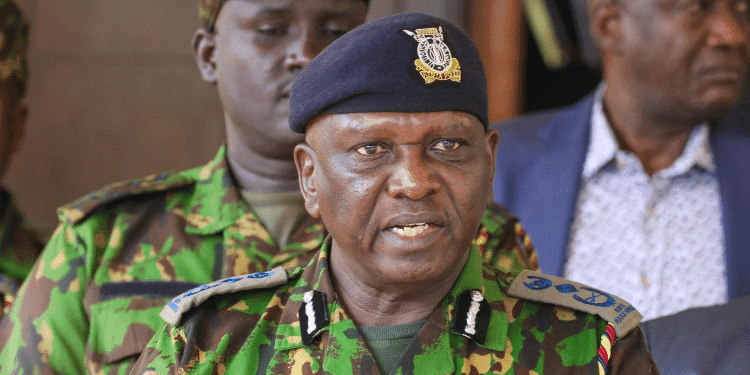We're loading the full news article for you. This includes the article content, images, author information, and related articles.
Inspector General Douglas Kanja's meeting with the Salaries and Remuneration Commission signals a potential overhaul of police welfare and remuneration, coming just a day after a landmark court ruling consolidated the IG's authority over police human resource functions.

NAIROBI – Inspector General of Police Douglas Kanja met with the Salaries and Remuneration Commission (SRC) on Friday, October 31, 2025, a move signaling a renewed focus on police welfare and compensation. The high-level meeting occurred just one day after a significant High Court ruling that decisively shifted human resource powers, including recruitment, promotions, and discipline, exclusively to the Inspector General's office, stripping the National Police Service Commission (NPSC) of these functions.
The meeting, held at the Inspector General's Jogoo House office, brought Mr. Kanja together with SRC Chairperson Sammy Chepkwony. According to a statement from the National Police Service (NPS), the discussions centered on strengthening collaboration to advance ongoing police reforms aimed at enhancing service delivery, accountability, and the working conditions for officers. Mr. Kanja briefed the SRC on reform initiatives intended to transform police stations into centers of excellence, requesting the commission's support to achieve these goals. The SRC Chairperson assured the IG that such detailed engagements would inform the commission's future reviews and considerations for the police service.
The context for this engagement is a pivotal ruling delivered on Thursday, October 30, 2025, by the Employment and Labour Relations Court. Justice Hellen Wasilwa declared that the NPSC has no constitutional mandate to recruit, train, assign, or dismiss police officers, stating these functions are the exclusive domain of the National Police Service headed by the Inspector General. The court nullified the planned recruitment of 10,000 officers that had been advertised by the NPSC, ruling Legal Notice No. 159 of September 19, 2025, as unconstitutional. Justice Wasilwa affirmed that the NPSC is not a national security organ under Article 239(1) of the Constitution and its role is confined to oversight and policy, not operational command. This decision reinforces the independence of the Inspector General's office as stipulated in Article 245 of the Constitution.
The court's clarification of roles resolves a long-standing power struggle between the NPS and the NPSC, which had previously created confusion and disputes over functions, including the management of the police payroll. With the IG's authority now firmly established, the meeting with the SRC is a critical step towards addressing the persistent issue of police remuneration, which has been a major barrier to performance and a source of low morale. Various studies and task forces have highlighted that inadequate pay and poor working conditions are significant factors affecting police officers' mental health and performance.
In recent years, the government has made commitments to improve police salaries. A task force led by former Chief Justice David Maraga recommended a significant 40% pay rise for constables, which was to be implemented in phases starting July 1, 2024. The goal is to delink police salaries from the standard civil service job groups to a structure that recognizes the unique and hazardous nature of their duties. The collaboration between the IG's office and the SRC will be instrumental in implementing these recommendations and developing a sustainable remuneration system that can attract, retain, and motivate officers.
The consolidation of human resource functions under the Inspector General, combined with a direct and collaborative approach with the SRC, presents a crucial opportunity for comprehensive reforms within the National Police Service. Improved welfare is seen as a cornerstone of enhancing professionalism, reducing corruption, and ultimately building public trust in the police force. The success of these reforms will depend on the sustained commitment of the police leadership and the SRC to implement fair and adequate compensation structures. As the NPS moves to announce new recruitment dates under its clarified mandate, the welfare of its officers is now squarely in focus, a development with significant implications for Kenya's national security and the rule of law.
Keep the conversation in one place—threads here stay linked to the story and in the forums.
Sign in to start a discussion
Start a conversation about this story and keep it linked here.
Other hot threads
E-sports and Gaming Community in Kenya
Active 9 months ago
The Role of Technology in Modern Agriculture (AgriTech)
Active 9 months ago
Popular Recreational Activities Across Counties
Active 9 months ago
Investing in Youth Sports Development Programs
Active 9 months ago